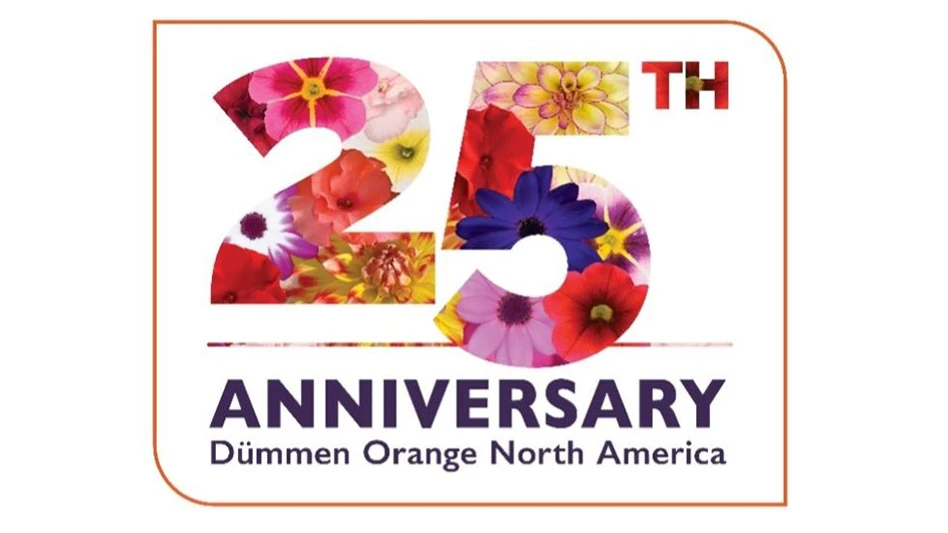
 Adobe stock
Adobe stockThe American Rose Trials for Sustainability (A.R.T.S.) is excited to announce our 2019
To be effective, we knew A.R.T.S. award-winning roses must possess the characteristics that Americans want in the roses they purchase. We reached out to a wide range of rose stakeholders (consumers, landscapers, nursery professionals, public horticulturists, rose society members, etc.) and built the evaluation protocol accordingly. There was very clear consensus for what people desired most. Not surprisingly, all the groups wanted healthy roses and insisted the program be no spray. Overall, 45 percent of the score reflects subcomponents of the health and quality of the foliage, 42.5 percent the presentation and quality of the flowers, and 12.5 percent plant growth habit. Data is collected monthly throughout the growing season to effectively capture and reward roses with consistently strong plant performance. In 2014, instead of jumping right in with accepting new entries, A.R.T.S. first began trialing 22 leading rose cultivars known for their health and performance to test and refine the research protocol before accepting the first set of industry entries in 2015.

The A.R.T.S. scientist team members have many years of plant evaluation experience with roses and other ornamental plants. They know how to conduct cultivar trials using the scientific approaches necessary to publish in scientific journals, and they bring that strong, unbiased methodology to A.R.T.S. One method they spearheaded, typically overlooked in rose award programs, is the use of blocking, replication, and randomization so that statistical comparisons can be made. Blocking involves dividing up the planting space into beds with each bed having one replica of each rose cultivar planted in random order within it, and data taken on a per plant basis. If all plants of a cultivar are planted together, it is not possible to distinguish whether the differences observed between cultivars are due to the soil or other location conditions or to superior cultivar performance.
Another advancement by A.R.T.S. scientists is planting the same two control cultivars in every trial as a performance reference. Since the beginning of the trialing program, Carefree Beauty and Knock Out were used as the controls for three reasons: (1) they are popular sellers throughout the country, (2) they typically survive in the climate regions we are testing in, and most importantly (3) these two roses have gone through many years of evaluations in the long-term Earth-Kind rose trials so there is ample performance data from throughout the U.S. to give the A.R.T.S. research team a reasonable expectation of disease tolerance/resistance and good overall performance. The control cultivars are the benchmark against which test roses are compared.
Trial sites are strategically located throughout the continental U.S. and are hosted by partners that share the A.R.T.S. mission

To make our recommendations more precise, awards are granted regionally and are earned by roses scoring higher than the average of the two control cultivars. Additionally, greater than 50 percent of the plants need to survive in the region until the end of the trial. For each region in which a trial rose meets the performance threshold, it earns an A.R.T.S. Local Artist award. If a rose earns a Local Artist award in four or more regions, it is designated as an A.R.T.S. Master Rose, the highest award the program bestows honoring the rose’s wider range of adaptability.
There is no predetermined number of roses that can receive awards each year since awards are based solely on these clear performance guidelines. Likewise, there is also no guarantee that any of the trial roses will perform well enough to earn an award in any given year.
There are 11 roses earning awards for 2019, eight A.R.T.S. Master Rose awards and three A.R.T.S. Local Artist awards. These awards include some roses that are well established in the marketplace as well as newer cultivars. Out of the initial 2014 planting of 22 cultivars grown for multiple years as we tested and refined our protocol, we decided those roses that met our stringent criteria should also have the honor of A.R.T.S. awards. Debuting the 2019 winners in mid-2018 provides ample time for industry members to book winning roses for next season.
A.R.T.S. will serve as the new premier U.S. rose awards program representing and serving multiple horticultural stakeholder groups for landscape and garden roses. With the solid evaluation protocol and data determining regional awards, the outcome is that consumers are highly likely to be successful with A.R.T.S.
For more: americanrosetrialsforsustainability.org

About the authors
Michael Schwartz, academic assistant, Naugatuck Valley Community College, mschwartz@nv.edu ; David C. Zlesak, associate professor of horticulture, University of Wisconsin-River Falls; Randy Nelson, extension educator, University of Minnesota Extension- Clay County; Gaye Hammond, past president Houston Rose Society; Steve George, professor and extension horticulturist, Texas A&M AgriLife Extension Service.
Get curated news on YOUR industry.
Enter your email to receive our newsletters.

Explore the May 2018 Issue
Check out more from this issue and find your next story to read.
Latest from Nursery Management
- March 2025 issue recap
- Gratitude as a marketing strategy
- Leading Women of Horticulture: Katie Dubow, Garden Media Group, and Aubry Field, Lizzy Blossom
- Leading Women of Horticulture: Arden Pontasch, North Creek Nurseries
- Super Charged Moon Juice from Moon Valley Nurseries now available nationally
- 2025 Proven Winners Horticulture Scholarship applications now open
- Leading Women of Horticulture: Anna Ball, Ball Hort, and Terri McEnaney, Bailey Nurseries
- Leading Women of Horticulture: Crystal Cady and Elizabeth Brentano






